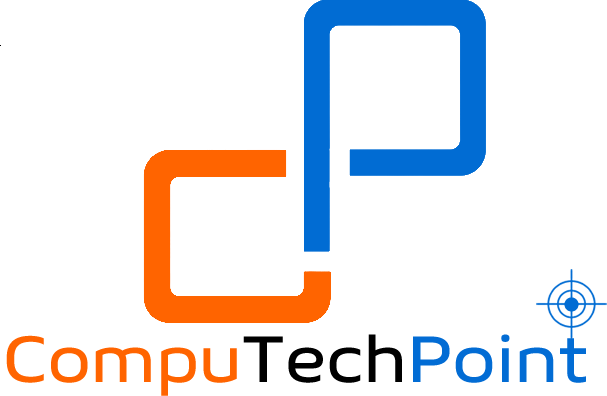A degree in Computer Science and Information Technology (IT) opens up a world of opportunities in today’s digital age. It is a field that is not only essential for the growth and innovation of businesses, but also plays a vital role in every sector of the modern world.
Graduates in this field have a wide range of job opportunities. They can work for technology startups, large international companies, government offices, research institutions, or as freelancers. The greatest advantage of this field is its flexibility, which enables graduates to adapt to changing technologies and succeed in different roles.
Companies around the world are looking for experts who can develop new technical solutions, strengthen cybersecurity, manage big data, and work on cutting-edge technologies such as Artificial Intelligence (AI) and Blockchain.
Computer science and IT professionals are always in demand, which is why it is relatively easy for graduates of this field to find job opportunities.
With this in mind, in this blog post, we have provided a complete list of different career options in Computer Science and Information Technology so that you can choose the best path according to your interests.

List of career paths for Computer Science and IT Graduates
Following is a comprehensive list of career options that computer science graduates can pursue after their graduation:
1. Software Development & Programming
- Software Developer / Engineer
- Web Developer / Designer
- Mobile App Developer
- Game Developer / Video Game Developer
- Software Architect
- Embedded Systems Developer
- DevOps Engineer
- Software Quality Assurance (QA) Engineer
- Systems Programmer
- Computer Programmer
- Full Stack Developer (new)
- Front-End / Back-End Developer (new)
2. Data Science, AI & Machine Learning
- Data Scientist
- Data Analyst / Big Data Analyst
- Machine Learning Engineer
- AI Specialist / Artificial Intelligence Designer
- Data Engineer
- Business Intelligence (BI) Analyst
- Computational Linguist
- Bioinformatics Specialist
- Deep Learning Engineer (new)
- Prompt Engineer (new)
3. Cloud Computing & Virtualization
- Cloud Architect / Solutions Architect
- Cloud Security Specialist
- Cloud Engineer
- Virtualization Engineer
- Cloud Systems Administrator
- Cloud DevOps Specialist (new)
4. Cybersecurity & IT Risk Management
- Cybersecurity Analyst / Specialist
- IT Security Consultant
- Network Security Analyst
- Digital Forensics Analyst
- IT Auditor
- IT Risk Manager
- Security Systems Programmer
- Ethical Hacker / Penetration Tester (new)
- Information Security Manager (new)
5. Networking & Systems Administration
- Network Administrator / Support Specialist
- Network Architect
- Systems Administrator
- Systems Engineer
- IT Operations Manager
- Computer Network Specialist
- IT Infrastructure Engineer (new)
6. Database & Information Management
- Database Administrator (DBA)
- Database Developer
- Data Architect
- Information Systems Manager
- Big Data Engineer (new)
7. Emerging Technologies & Innovation
- Blockchain Developer
- Robotics Engineer / Consultant
- Virtual Reality (VR) Developer
- Augmented Reality (AR) Developer (new)
- Internet of Things (IoT) Engineer (new)
- Automation Engineer (new)
- Quantum Computing Researcher (new)
8. IT Management & Consulting
- IT Project Manager
- Technical Project Manager
- IT Consultant
- IT Business Analyst
- IT Procurement Specialist
- IT Compliance Analyst
- Chief Information Officer (CIO)
- IT Operations Director (new)
9. IT Support, Training & Education
- IT Support Specialist / Help Desk Technician
- IT Trainer / Educator
- Subject Specialist (IT)
- Lecturer / Professor in Computer Science & IT
- Computer Science & IT Teacher
- Computer Operator
- Technical Support Engineer (new)
10. Research, Design & Other Specializations
- Computer Scientist
- Computer Engineer
- Computer Hardware Engineer / Designer
- Industrial Designer
- Multimedia Programmer
- UX / UI Designer
- Human-Computer Interaction (HCI) Specialist (new)
- Internet Consultant
- eCommerce Consultant
- Internet Safety Analyst
- Digital Transformation Specialist (new)
I hope, this article will help you understand and evaluate the various career options in computer science and information technology.
The goal of this article is to provide you with a clear understanding of all the possible paths in this field — such as software development, networking, data analysis, cybersecurity, and artificial intelligence.
With the help of this information, you will be able to better decide which career is the best fit for you based on your interests, skills, and future goals.
We strive to ensure that this guide helps you start a strong and successful professional career.
If you have any query, suggestion or feedback feel free to contact us using the details provided on our contact us page.
Computer Science & IT — FAQs
1. What is the difference between Computer Science and IT?
Answer: Computer Science focuses primarily on topics such as software, programming, algorithms, and artificial intelligence, while Information Technology (IT) focuses mostly on practical aspects such as networking, data management, and system administration.
2. What are the best jobs after a Computer Science or IT degree?
Answer: Graduates can work in a variety of positions such as Software Engineer, Web Developer, Data Analyst, Cyber Security Specialist, Network Administrator, or AI Engineer.
3. Are there freelancing opportunities in computer science?
Answer: Yes, there are countless freelancing opportunities in the computer science and IT field. You can earn an income by providing web development, app development, graphic design, data analysis, or cybersecurity services online.
4. What skills are necessary to succeed in this field?
Answer: Key skills include programming (Python, Java, C++), database management, networking, communication, teamwork, and problem solving skills.
5. Is the future of computer science and IT secure?
Answer: Absolutely! Technology is advancing rapidly around the world, so the demand for experts in this field is increasing with each passing day. This is a field that offers countless opportunities for growth, innovation, and employment.

